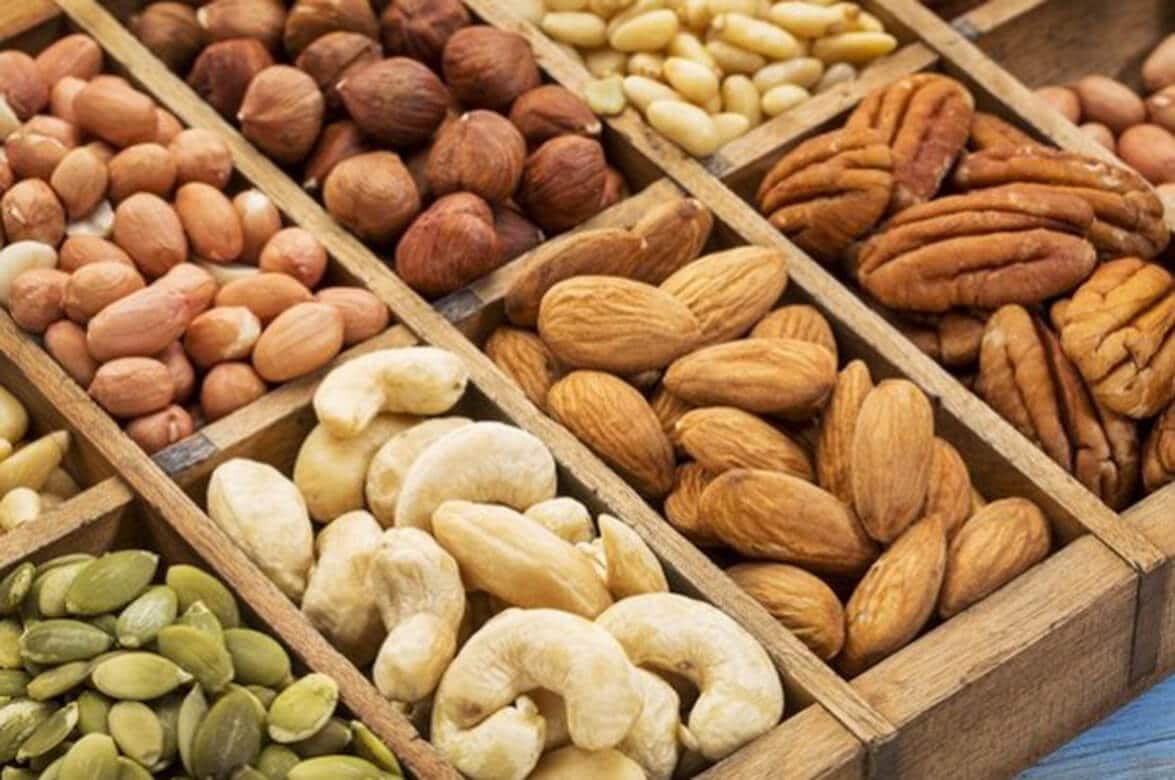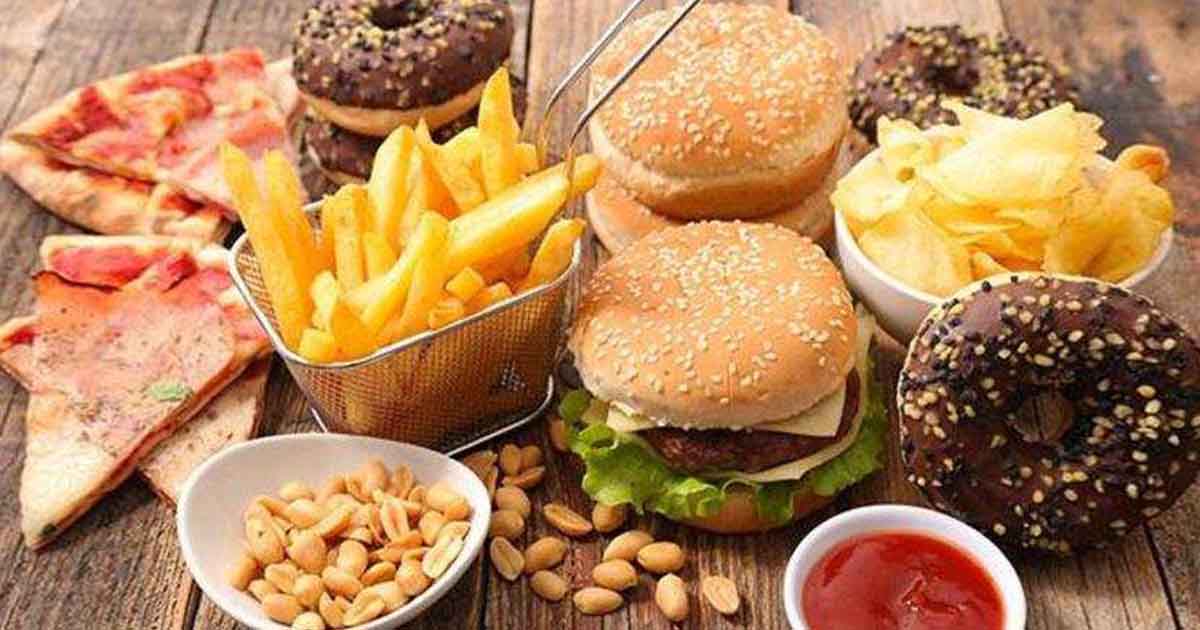
A teenage boy went blind and partially deaf after living off a diet of chips, sausages and crisps for the past decade. The British boy (who chose to remain anonymous) had such a diet since his childhood. This led him to suffer from a condition normally only seen in malnourished third-world children.
His is believed to be the first case of its kind in the UK. The 18-year-old had only eaten chips, Pringles, sausages, processed ham and white bread since primary school, telling doctors he did not like the “texture” of fruit and vegetables.
Dr Denize Atan, who works for the University Hospitals Bristol NHS Foundation Trust and wrote about the boy’s case, said: “He had a daily portion of fries from the local fish and chip shop and snacked on Pringles, white bread, processed ham slices and sausage.”
The shocking lack of vitamins damaged his optic nerve, which connects the eye to the brain. He was found to have a condition called nutritional optic neuropathy (NON) – usually only seen countries where access to food is restricted.
A lack of vitamin A causes the cornea to become very dry, leading to clouding of the front of the eye, corneal ulcers and vision loss.
Dr Atan said the youngster’s blindness was caused by junk food and that he was suffering from a rare eating illness known as avoidant-restrictive food intake disorder or AFRID for short.
Sufferers become sensitive to the taste, texture, smell or appearance of certain types of food. Some can only eat them at a certain temperature.
The young boy from Bristol also developed hearing loss and bone weakness. Hence, eating too much sugar and carbohydrates in processed food can damage the ears. Dr Atan said: “The conditions remained undiagnosed for several years.”
The boy was blind by the time he reached 17, leaving experts at Bristol Eye Hospital mystified. While NON can run in families, there were no hereditary signs found in the boy. However, he was deficient in vitamin B12 which is found in offal, milk, fish and eggs, prompting doctors to carry out further investigations into his diet.
Once drinking, smoking and drug taking were ruled out as possible causes, and his height and BMI had been judged normal, the medics landed on diet as the likely reason for his illness.
Read more: How bad are processed foods for health?
Dr Atan said: “However, the patient confessed that, since elementary school, he would not eat certain textures of food.” He had first been taken to his GP three years earlier, when he was 14, complaining of tiredness.
Aside from being labelled a “fussy eater”, he was otherwise well and took no medications. Blood tests showed he had low levels of B12 which caused fatigue, leading to treatment including vitamin injections and diet advice.
The intervention had little effect on the teen, whose hearing and sight began to deteriorate when he was 15. Following two years of progressive loss his visual sharpness was just 20/200 and he was diagnosed with NON.
Normal vision is 20/20, which means you can read an eye chart at 20 feet. To be considered legally blind, it needs to be 20/200 or worse.
The boy lost nerve fibres in the retina which essentially ruined his central visual field. Dr Atan said: “Junk foods are nutritionally poor but energy-dense and cheap.
“As in this patient, BMI is often normal.” NON is potentially reversible if caught early. But if left untreated, it leads to permanent blindness.

Eyesight and Vitamin Deficiency
Following are the vitamins most essential for maintenance of vision and eye health:
Vitamin A
These are a group of antioxidant compounds (retinol and retrinal) that play an important role in vision, bone growth and health of the immune system. Vitamin A also helps the surface of the eye, mucous membranes and skin be effective barriers to bacteria and viruses, reducing the risk of eye infections, respiratory problems and other infectious diseases.
One of the first signs of vitamin A deficiency is night blindness. A lack of vitamin A causes the cornea to become very dry, leading to clouding of the front of the eye, corneal ulcers and vision loss. Vitamin A deficiency also causes damage to the retina, which also contributes to blindness.
Vitamin C
Vitamin C is a health powerhouse. You can find it in fruits like oranges, kiwi, and strawberries, as well as vegetables like broccoli, mustard greens, and peppers. In addition to providing antioxidants, it can also help slow cataracts and provide needed eye vitamins for macular degeneration.
Vitamin E
Depending on which study you read, Vitamin E may serve as a great antioxidant and agent against cataracts and macular degeneration as well. You can find Vitamin E in many nuts, like almonds, peanuts, and pine nuts, along with dried apricots and sunflower seeds.
What Can We Do?
Our diet, lifestyle and mental health leave an extensive mark on our bodies. However resilient they may be, their defense mechanisms cease to work when they run out of nutrient stores. Getting enough vitamins is important at every age, especially natural vitamins in your food. The functions of vitamins can be numerous.
Research on beta carotene’s role in vision is mixed, though the body needs this nutrient to make vitamin A.
Organizations such as the American Optometric Association (AOA) and the American Academy of Ophthalmology (AAO) continue to recommend nutrients for eye health based on the AREDS reports.
The AREDS reports support the following 10 nutrient-rich foods:
Fish
Many fish are rich sources of omega-3 fatty acids. Oily fish are fish that have oil in their gut and body tissue, so eating them offers higher levels of omega-3-rich fish oil. The fish that contains the most beneficial levels of omega-3s include: tuna, salmon, trout, mackerel, sardines, anchovies, herring
Some studies have found that fish oil can reverse dry eye, including dry eye caused by spending too much time on a computer.
 Nuts and Legumes
Nuts and Legumes
Nuts are also rich in omega-3 fatty acids. Nuts also contain a high level of vitamin E, which can protect the eye from age-related damage. Nuts are available for purchase in most grocery stores and online. Nuts and legumes that are good for eye health include: walnuts, Brazil nuts, cashews, peanuts, lentils
Seeds
Like nuts and legumes, seeds are high in omega-3s and are a rich source of vitamin E. Seeds are available for purchase in most grocery stores and online. Seeds high in omega-3 include: chia seeds, flax seeds, hemp seeds
Citrus Fruits
Citrus fruits are rich in vitamin C. Just like vitamin E, vitamin C is an antioxidant that is recommended by the AOA to fight age-related eye damage.
Vitamin C-rich citrus fruits include: lemons, oranges, grapefruits
Leafy Green Vegetables
Leafy green vegetables are rich in both lutein and zeaxanthin and are also a good source of eye-friendly vitamin C. Well-known leafy greens include: spinach, kale, collards

Carrots
Carrots are rich in both Vitamin A and beta carotene. Beta carotene gives carrots their orange color. Vitamin A plays an essential role in vision. It is a component of a protein called rhodopsin, which helps the retina to absorb light.
Research on beta carotene’s role in vision is mixed, though the body needs this nutrient to make vitamin A.
Sweet Potatoes
Like carrots, sweet potatoes are rich in beta carotene. They are also a good source of the antioxidant vitamin E.
Beef
Beef is rich in zinc, which has been linked to better long-term eye health. Zinc can help delay age-related sight loss and macular degeneration. The eye itself contains high levels of zinc, particularly in the retina, and the vascular tissue surrounding the retina. Meats such as chicken breast and pork loin also contain zinc, but at lower levels than beef.
Read more: Dark Circles Under Your Eyes: Causes and Treatments
Eggs
Eggs are an excellent source of lutein and zeaxanthin, which can reduce the risk of age-related sight loss. Eggs are also good sources of vitamins C and E, and zinc.
Water
It may come as no surprise that a fluid essential to life is also vital to eye health. Drinking plenty of water can prevent dehydration, which may reduce the symptoms of dry eyes.














